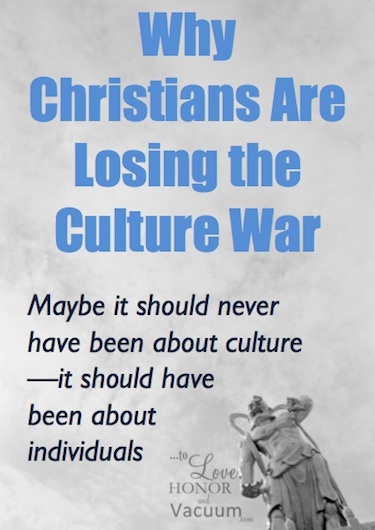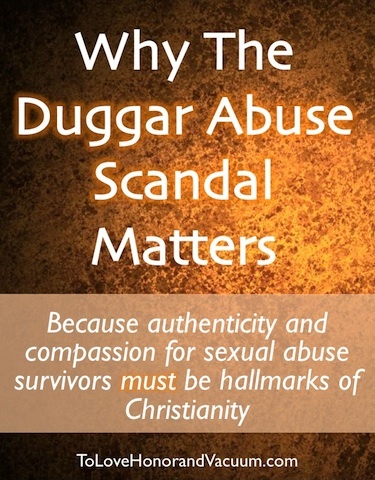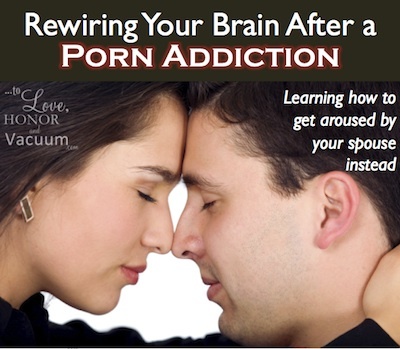Sheila Wray Gregoire's Blog, page 183
June 1, 2015
Reader Question: I Never Told On My Abuser

 Do family secrets need to be brought to light? Should you confront someone who abused you as a child?
Do family secrets need to be brought to light? Should you confront someone who abused you as a child?Every Monday I like to post a reader question and take a stab at answering it. Last week, after I posted on the Duggar abuse scandal, I started receiving quite a few emails and Facebook messages from women who were abused as children and weren’t sure what their next steps should be now. This note in particular really hit me:
I have been reading your posts about the Duggar ‘scandal’ with much appreciation. I have been on the receiving end of unwanted sexual behavior a number of times as a child and teen, even in the first year of our marriage (from someone other than my spouse) and I am struggling to move on. It was all kept a secret. I find it so difficult to open up to my husband of 5 years. I have spoken to him, but don’t know if he wants to know more, or if he just assumes I am all healed. How much or little detail do I go into? My parents also were not very open about sexuality and anything really other than teach biblical doctrine and cooking and cleaning. I lack many insights on what a healthy marriage is and just feel like I am drowning in emotion and self pity and I just want it to END! My husband is also recovering from watching porn. He’s doing really well but I am the only one he has told about it. The people from my past are known to me and two are relatives that I see regularly at family functions and church. I have forgiven them in my heart but feel I need to do so face to face. Do I talk to to them?
What a lot of pain! Let’s try to give her some help:
First, a couple of big things: she is dealing with so much, and she’s living in the center of shame: shame from her parents who never talked about sex; shame from those who abused her; and shame because her husband watched porn. And she’s never been able to properly talk about any of this because there’s this cone of silence around everything.
The secrets need to stop.
When we shed light, God is there and can do amazing things. When we keep secrets and keep things hidden, we prevent God from doing His work, too.
I’m reminded of Micah 6:8 here:
He has shown you, O mortal, what is good. And what does the LORD require of you? To act justly and to love mercy and to walk humbly with your God.
God wants us to love justice (which requires truth and speaking up); to do all this in a spirit of mercy (without vindictiveness or bitterness); and to be humble before God.
So often we think we’re merciful if we just “let things go”. But you can’t have real mercy without truth; you need both.
And so I’m going to suggest a radical shaking up in your family that may make you uncomfortable. I’m going to suggest that you tell the truth.
Here’s why:
Forgiveness and reconciliation are not the same thing.
Forgiveness is something that you can do on your own: you decide “I will let God deal with this person, not me.”
Reconciliation on the other hand requires acknowledgment on the part of the other person to the pain that that person has caused. Reconciliation helps not just your own relationship but that person’s relationship with God. They’re forced to confront their misdeeds and they have a chance to repent and make things right.
When there is no reconciliation, there can be no real relationship. There is only a false facade. A real relationship can’t be based on a lie, and when there is something that big, it is all a lie.
So you have to tell the truth in order to get your relationships on a path where God can work towards peace or can let people choose judgment (and He would rather that people be given that stark choice than that things remain in secrets and lies). Remember, he’d rather us be hot or cold, not lukewarm.
But there’s another reason this has to come to light.
If someone abused you, chances are you were not the only one.
Therefore, if these individuals have minor children in the home still, then you must call children’s services. You simply must, in order to prevent any harm to those kids. I know this will be tough, but morally it is absolutely the right thing to do.
If these individuals serve in leadership at their church, or if they serve with children in any way at their work or at church, you must also tell their church. You are not responsible for what the church does with that information, but you must tell. A simple letter or email is fine. So many churches have been rocked by abuse, and this will continue to happen unless we start speaking up. And churches desperately want to avoid children being hurt in their care.
Speaking of contacting authorities, if the statute of limitations is not expired in your state, you may also consider filing criminal charges. But that is up to you.
Also, there may be other adult victims in your family. You may have cousins or siblings who were also abused by these men. When you speak up, you give them the chance to as well.
So you must speak up to achieve reconciliation, to validate others’ abuse stories, and to protect others.
But what are your practical steps? Here you go:
How to End Secrets and Bring Past Abuse to Light
I’m going assume that you have already contacted authorities and the church, if necessary. But here’s what you do for the rest of your family:
Get some support around you.
Talk to a counselor preferably, or one or two mentors who can pray with you and stand with you. Once you have talked it over with them, be fully open with your husband. Tell him what happened to you, in as much detail as you are comfortable with, and tell him how you think this affected you. Tell him that you want healing, and you’re striving towards that, and you totally believe healing can happen. Sometimes this is easier to do with the counselor present. Then the counselor can also explain to your husband why you need to bring this to light.
Tell your immediate family
Now it’s time to tell your parents and your siblings (unless they are the abusers; in that case skip to the next step). Tell them what happened, and tell them this: “I am going to contact them and ask for acknowledgement of what happened and an apology. If it is not given, I can no longer be in fellowship with them. I ask you not to invite them to family events anymore. If you do, then I will no longer come.”
This is not being mean; it is just acknowledging that while forgiveness can be given by you alone, reconciliation cannot. Reconciliation is only possible when the other party admits the sin.
Contact your abusers in a safe way
I suggest using email; it keeps you at a safe distance and it avoids you having to listen to them yell or be defensive or call you names. You can even do so using your husband’s email so that if they send back a horrible response your husband can screen it and shield you from the details, if necessary.
Say something like, “I have disclosed the things that you did to me when I was X years old to my parents, my family, and my husband (and the authorities or the church if you also did this). I would ask that you admit what you did and apologize. If you do not, I will no longer be able to see you at social functions or at church. I ask that you be open and honest so that healing and reconciliation can take place.”
Contact the church (if you haven’t already) and ask for church discipline
You go to the same church as these individuals. That must end unless you achieve reconciliation (and even if you do, it may still be a good idea to go to a different church).
However, if you like your church, then they should have to leave it, not you.
Contact the elders’ board and explain in as much detail as is necessary what happened at the time, and ask that the elders help your abusers get established in another church so that you can feel spiritually safe.
Warning: many churches will not handle this well, especially if your abusers are in leadership positions. This may cause you a lot of hurt. If you know it won’t be handled well, then you likely need a new church anyway. That’s not a safe church.
Recognize that this will be difficult
This may very well blow a hole in your family, and people may blame you. But you did not cause the rift; your abusers did. You are simply trying to mend the rift by achieving honesty and reconciliation.
A family that socializes without acknowledging harm done is not healthy. It may outwardly look fine, but there is no real love there. Real love can only be present when real truth is also present. If self-preservation and “not rocking the boat” are the main things people want, then that is not loving; it is holding God at a distance. If God is going to do something in your family, it will only be because someone is finally shining a light on Truth.
So, yes, you may lose some relationships with your family. But those relationships weren’t real anyway. It is better–even if it is heartbreaking–to move forward in truth.
What about your marriage?
When secrets are part of your past, it’s very likely that openness is missing in your marriage. You grew up without honesty and good communication, so it’s hard to achieve that now, even in a healthy relationship.
 In our letter writer’s case, it sounds like she and her husband need to start learning to talk about and communicate about sex and marriage. I’d really suggest talking to a counselor for at least six sessions. And if you haven’t done it yet, I’d really suggest picking up a copy of 31 Days to Great Sex, which walks you through so many exercises that will help the conversations start. For so many people that’s what they need most: a way to actually talk about it.
In our letter writer’s case, it sounds like she and her husband need to start learning to talk about and communicate about sex and marriage. I’d really suggest talking to a counselor for at least six sessions. And if you haven’t done it yet, I’d really suggest picking up a copy of 31 Days to Great Sex, which walks you through so many exercises that will help the conversations start. For so many people that’s what they need most: a way to actually talk about it.
My dear readers: my heart has broken this week with all of these stories I’ve been hearing. There are just so many secrets. So many. But Jesus came to be the Light, and He can handle those secrets. I don’t know if He will bring reconciliation; He leaves that up to us to choose it, and your abusers may not. But it is better to live under Truth, even if it means your family gets a lot smaller, than to live with a lie.
I’m so sorry. I really am. May God be with you and may He put the right people around you to support you as you tell the truth.
Let me know: has your family ever been rocked by something like this? What did you do? Let me know in the comments!
The post Reader Question: I Never Told On My Abuser appeared first on To Love, Honor and Vacuum.




May 29, 2015
Why I Won’t Be Quiet

 It’s Friday, which means it’s time for my weekly Round-Up!
It’s Friday, which means it’s time for my weekly Round-Up!I share the top posts this week on the blog and on social media, and then fill you in on some “behind the scenes” things going on in my family and my life.
And scroll down–I’ve got a really funny and ironic picture to show you, too.
Now let’s get started:
What’s #1 This Week

 #1 on the Blog: Why the Duggar Abuse Scandal Matters
#1 on the Blog: Why the Duggar Abuse Scandal Matters
#1 on Facebook: Bringing God into Parenting–Naturally!
#1 on Pinterest: 6 Rules of Relationship Conflict
#1 on Twitter: Ever feel like sex is all “for the hubby”?
Why I Won’t Shut Up
I’ve been criticized by quite a few by talking about the Duggars too much this week. I had the one big post, and then I mentioned it in my post on the Culture War (THANK YOU for the great discussion on that post, too–it’s one of the very few posts I can remember where everyone was civil, no one was criticizing, we were all just trying to understand each other. We didn’t all agree, but it was SO REFRESHING!). I had three posts on Facebook–one pointing to , one to mine, and then yesterday’s when I tried to explain myself further.
In between I had twelve other posts on Facebook and two other blog posts, so I don’t think this is all I’ve been talking about!
But here’s the thing: the reason I keep talking about it is not because of the Duggars. It’s because the reaction by a large number of Christians shows me that I don’t think we as a church understand the severity of sexual abuse. People are still saying, “the Duggar girls forgave years ago!” And “It’s all behind them!”
For me, this has never been about the Duggars. It’s been about the Christians who, I believe, have inappropriately defended them and thus given a very wrong message to the world, and to sexual abuse victims, about how the church feels about sexual abuse and about integrity.
If people would stop saying these things, I could let it go.
But I see my mission very much as encouraging healthy sexuality within the church. We can only do that when we also recognize what can mar and harm our sexuality and talk openly about the reality of flashbacks, triggers, and healing being a multi-faceted process.
I think I’ve said pretty much all I’m going to say now, although I will be talking later this summer about some of the underlying bad theology in some Christian movements which makes abuse more rampant, but I just plead with people to understand that when you defend the Duggar parents loudly, you further wound sexual abuse survivors who are listening to you and who are hearing you say, “it’s all behind them!” Here’s what I wrote on Facebook:
I’ve been saddened this week in the discussion about the Duggars by how many people don’t seem to understand the long-term consequences of sexual abuse. Our culture has done a good job teaching people about how abuse is wrong; how we should report abuse; how abuse can be present even in outwardly “good” families. What we haven’t done is shared how abuse impacts people–how healing is usually multi-faceted and long-term; how triggers can happen years afterwards; how sexual abuse especially can make “making love” difficult. Combine that with our church’s often shallow explanation of forgiveness, and we get a situation where people honestly think “forgiving and forgetting” is enough–even when a victim is young. We need to talk not just about forgiveness but also about what healing looks like. Whether it’s abuse, incest, or infidelity, trust usually takes a long time to rebuild–even for Christians. Healing is multi-staged because the effects often aren’t seen until later. That’s normal. That’s the way God made our spirits and souls. And we need far more compassion for victims of abuse of any kind than a simple “just forgive!”
On Instagram–I Had My Birthday!
On Monday I had my birthday.
And here was my devotional for that particular day.
Too funny! God’s been speaking to me specifically this year through this devotional. I’ll have a verse I’ll be meditating on that will come to mind about something I’m struggling with, and then the next day that verse will be the main one the devotional is talking about.
I had a specific verse I was praying over one friend of my daughter’s everyday for six months, and on the six month anniversary of me praying that verse, the devotional was, “How to Pray 2 Timothy 1:7 for someone”. It’s just been neat.
So when I saw that particular message, I laughed, because I know God must have a sense of humour.
(Follow me on Instagram, too!)
My Daughter’s Wedding Shower Was Last Weekend
The women from my church put on a lovely shower for her. We were so blessed!
And she has two more showers coming up–her home church where she goes (she lives in a different city), and her family shower. And she already received almost everything on her registry list.
My church didn’t really throw me a shower when I married, and I know not everyone has this experience. But it struck me what a true blessing that kind of community is–to support young people as they’re starting out. That’s something those outside the church really don’t have in the same way. Many people were at that shower who don’t even know us well. But they came to support anyway.
It made me realize–I need to make more effort to go to these showers. I need to make more effort to give encouraging gifts and cards to those just starting out in our church. It really does mean so much. And when young people have older Christians who show they care and support them–that’s a wonderful thing.
There’s another shower in our church this weekend, but I’m going to miss it. Out of town. But now I’m going to make sure I get a card and leave a long note and a nice gift. They blessed us; I want to return the blessing.
Speaking of blessing others, my youngest and I are heading down to Pennsylvania this weekend for grad parties for two of her friends. But we in Canada don’t really do this “grad party” thing. So we’re lost on etiquette.
Any tips on appropriate gifts? I’ve already got some things, but I want to make sure we’re on the right track!
Have a great weekend!
The post Why I Won’t Be Quiet appeared first on To Love, Honor and Vacuum.




May 28, 2015
Living in the Moment


Do we spend so much time rushing we miss out on the beauty of everyday life?
I’ve been contemplative this week. That happens around my birthday, and I’ve written some long pieces that share my heart about our culture. It’s tiring. And a few weeks ago I was writing about wasting time, and I felt unsettled, as if some things were left unsaid. I do believe that we waste too much time, but the answer is no always to be more productive. Sometimes it’s just to do things that feed our souls, rather than things–like video games–that sap it.
While thinking this I came across this column I wrote about ten years ago. I never published it on the blog, but I thought it fit in well with these themes. So I thought it was time. I hope you enjoy it.
Gophers were not meant to run.
They’re pear shaped with tiny little legs, and when they try to gain speed the effect is not of grace as much as it is of galump-galump-galump, as the flab takes time to catch up to the rest of the body. It’s quite the sight to behold.
Right now I’m watching a gopher—-or is it a groundhog? I can’t remember the difference—-trying in vain to put distance between himself and a very inquisitive toddler. I’ve hooked up my laptop in a library, where I can gaze out the window and enjoy the scenery when the mood captures me. It’s really very peaceful. That’s why I choose to come here rather than stay in my home with the telephone, and the doorbell, and the feeling that I should put on a load of laundry the second writer’s block hits.
Too often we drown the comfort out of our lives in favour of rushing.
It seems we almost bow at the altar of multi-tasking. Few things, though, are truly satisfying when they’re hurried.
One of my favourite times of day is in late afternoon, after I’ve rushed through my day, and my to-do list is as to-done as it’s going to be. I slip a jazz CD in, pour myself something good, and begin to cook. I’m not a great cook, but I do enjoy trying. Chopping vegetables, smelling the garlic and onions as they sautee, or seasoning the roast are all immensely satisfying. I even love cleaning up the kitchen while everything is spending the last few minutes simmering. It’s supremely satisfying to know that one has created a decent meal for one’s family, and has had fun doing it.
On the nights when my husband isn’t home it’s hard to get up the energy to do all that. I wonder what the
point is, since the children are unlikely to appreciate it anyway. Increasingly, though, I’m beginning to understand that I need that forty-five minutes or an hour to myself to reflect on my day and feel that I can at least accomplish something. It feels very purposeful.
Of course, being purposeful doesn’t mean that we always have to be productive.
I think that’s a rather modern, North American way of looking at life. Some of my favourite, purposeful memories aren’t when I was “doing” anything at all. I remember one particular day when Rebecca was only three months old and was lying on a playmat on the floor. She was looking into my eyes and “vocalizing”, as my pediatrician would say. I think she was actually telling me a story. And I remember ordering myself to study her face, so that I could remember just what that moment was like for the rest of my life, as if I were bottling it up for posterity. And I did. It was perfect.
I had other such moments that perhaps don’t make me smile so much but are just as meaningful. I remember the conversation I had with my little boy in the hospital room before they came to carry him off to the surgery from which he would not recover. I told him all the important things I wanted him to know, and held him, and kissed him, and memorized his eyelashes, and his fingernails, and his tiny mouth.
More recently, I cherish the times that my husband and I spend just walking around our block, exploring our new neighbourhood and filling each other in on our days. We’re not moving fast enough for it to really count as exercise, but that doesn’t mean it’s time wasted. On the contrary. It’s time that feeds your soul.
I read recently that Albert Einstein once wrote that we either live as if everything is a miracle, or as if nothing is.
I prefer to believe that everything is, but that means I need to take time and actually enjoy what I’ve been given. So stop and smell the roses. Gaze at your child’s face. Or watch the gophers. There’s much in life to enjoy if only we could learn to savour it.
The post Living in the Moment appeared first on To Love, Honor and Vacuum.




May 27, 2015
Wifey Wednesday: When Your Husband Walks Away from the Faith

 What do you do when you feel like you’re in an unequally yoked marriage?
What do you do when you feel like you’re in an unequally yoked marriage? It’s Wednesday, the day when we always talk marriage! I introduce a post, and then give you all a chance to link up your marriage posts below. And today we’re going to talk about husbands walking away from the faith.
Here’s a note I recently a received from a woman whose husband is no longer a spiritual leader:
My husband and I met while in our church’s college group. We were both actively involved as leaders. I was drawn to him as a spiritual leader. We dated for two years, but after we got married he revealed that he had bitterness towards the church and felt he had been hurt deeply by people there. He is still a loving, gentle, and devoted husband, but I struggle deeply with this change in his heart. He recently stated he wasn’t sure why it was important to read the bible independently. I am unsure if he spends time reflecting and or praying for our family. He has agreed to be involved in a home group, but I struggle with feeling bitter and angry at him for his lack of spiritual leadership. I long to love and serve alongside him, and am not sure how I as his wife can can support him as he works through this other than praying for him.
Here’s another one coming from a similar place:
Is it possible that God really wants me to stay married to a man that refuses to spiritually lead us? To someone who wants to be a Sunday morning Christian, someone who has no desire to seek the Lord or his ways in any aspect of his life? Someone who is so stubborn that they refuse to change the way they interact with their wife and children despite going to many parenting and marriage classes? I keep trying to do what’s right by staying in a marriage that in so many ways is crippling me from moving ahead. We go to a church that is very weak in their teachings so I don’t have a pastor or even a women’s ministry that would be helpful in this situation.
I want to take a stab at this today, but first, I’ve written quite extensively on some of these topics before, and I think those posts would likely help here, too.
I’ve covered what to do when you feel like your husband isn’t a spiritual leader.
And I’ve covered what to do when you feel like you’re in an unequally yoked marriage.
Here’s a reader who has written a beautiful post about praying for her unsaved husband constantly–and then God answered very dramatically.
Go read those (especially the one about the spiritual leader) and then come back here.
Okay, are you back now? Good.
Today what I’d like to talk about is resentment: how not to let the resentment about your husband walking away from the faith block your own spiritual life, and then block his.
What I see in these letters is a lot of anger. Their lives did not turn out as they wanted. They dreamed of a proper Christian marriage where they could serve God together, and instead they feel alone. And they’re angry. Really angry. They may phrase it differently–I’m lost, I’m floundering, I’m sad–but if you read those letters, I see anger.
And I understand.
But your anger will never accomplish the purposes of God.
And anger is a funny thing–anger is a lot like fire, which is probably why the analogy is used so much in the Bible. Fire needs oxygen to grow. Without oxygen it just peters out. But with oxygen it can blaze up and engulf you.
Are you feeding your anger about your husband’s spiritual life?
You very well might be if you’re doing one of these things:
You replay your past
Our first letter writer is looking at her dating period where her husband was serving the Lord. She thought that was going to be the rest of her life. And so it hurts even more than he changed.
But we don’t stay the same after we’re married. Life happens. It sends us curveballs. We mature. We meet different people. And sometimes people change in ways that we don’t like.
But when you made your marriage vows, you vowed to always love your husband–not just love him as he is now.
Tip: Live in the moment with your husband. Think about what is good about him right now. Encourage him in where he is right now–even if it’s not where you want him to be. Stop thinking about the past.
You focus on his faults
Our second letter writer seems to be focusing primarily on all the things that her husband is doing wrong. And when we do that, we will find LOTS of things to criticize. It’s human nature!
Yet one of the best predictors of a good marriage is that people scan for things to praise, not criticize. When people are looking for the good they see the good and they think about the good. And that will suck the oxygen right out of that anger. But when you’re looking for the bad you’ll feed it.
Tip: What can you thank your husband for today? In the first case, the husband is going to a home group. She’d like him to do more, but that’s a pretty big step if he’s doubting his whole faith!
You thank God for what you do have
Sure, your husband isn’t spiritually leading the family. But is your marriage a good one? In the first case, this looks like a good marriage from what we can see. He’s agreed to go to a home group. He’s not making a big deal out of his lack of faith; he’s just struggling.
I have lots of friends with non-believing husbands who have a huge amount of fun with those husbands. They go on bike trips together. They have fun with the kids together. They laugh a lot.
And I have a lot of friends with believing husbands who have horrible marriages.
You can have a great unequally yoked marriage. No, it’s not ideal, but no marriage is ideal. And the reason that my friends with the good unequally yoked marriages thrive is because they’re not always focusing on what they’re missing. They’re focusing on what they have.
Tip: Build a great friendship with your husband. You have a lot in common other than just faith or you wouldn’t have chosen him in particular to marry. Stress those fun things again!
Do those three things and you’ll see your attitude start to change.
Are you pushing your non-believing husband further away from God?
Many women in unequally yoked marriages make things worse. Our husbands start having doubts and we overreact, thinking that if we can just prove that they have no right to have doubts that we will somehow silence it. We’ll get our husbands back again. So we try to defeat all his arguments, hoping that if we can show how his thinking is faulty we’ll change his feelings. It doesn’t work.
Let me suggest an opposite approach. This is where the admonition in 1 Peter 3 to “win him without words” comes in. When our husbands are doubting the faith, we don’t try to rail him back into it. We just are gentle about it.
And part of being gentle is settling a question in our spirit, and it’s this: God is big enough to take care of your husband’s doubts.
Let me share this quote I put in another post that fits quite well here, too:
Questions are okay. God can handle questions. And many of our husbands will go through periods of questioning.
They may question what they’ve been taught in their particular church background (in the first case, for instance, it looks like the husband is primarily rejecting his church’s manifestation of faith, rather than God overall).
Your husband may be rejecting your cultural expression of Christianity without actually be rejecting God. Please do not confuse the two or you just push him away and drive a major wedge between you–where he is unable to talk about the faith crisis he’s going through because you’ll misinterpret it and think he’s not saved when that’s not the issue. He just may not believe all the doctrines of your particular church anymore.
Here are just a few examples:
He may decide that hyper-conservative Christianity is not for him.
He may change from a Republican to a Democrat, or from a Democrat to a Republican (and we read a lot about faith into this)
He may decide that God could have used evolution to create the world
He may decide that he hears God better through Roman Catholicism (or through Protestantism)
Many of us, if our husbands did one of these things, would think, “He doesn’t believe in God anymore! He’s become an unbeliever!”, when really he has just decided that he believes differently.
Can you give him room to believe differently than you? Can you give him room to explore these ideas?
Remember this: God gives us room. God welcomes our questions.
In our marriage, we went through a ten year period like this. My husband was questioning everything EXCEPT God. He was questioning so much about what the church teaches on various subjects, like science, prayer, gifts, etc. etc. And it was a scary time for me. But I left the door open for my husband to still talk to me about his doubts. I’d listen, even when I was scared inside. And at the end of that ten year journey we both ended up at roughly the same place–it was just a different place than where we started. But we both have a much greater sense now of the reality of God in our lives.
Now some of our husbands WILL reject God, and not just reject church, and that’s certainly hard. But if you’re in a marriage where your husband is struggling with WHO God is rather than IF God is, then let him be.
Cherish Your Marriage
Just because it’s unequally yoked does not mean that it’s invalid. So to answer our second letter writer’s question: Yes, you have to stay married to a man who doesn’t lead you spiritually. Absolutely. In fact, God tells us this explicitly in 1 Corinthians 7:12-16:
12 To the rest I say this (I, not the Lord): If any brother has a wife who is not a believer and she is willing to live with him, he must not divorce her. 13 And if a woman has a husband who is not a believer and he is willing to live with her, she must not divorce him. 14 For the unbelieving husband has been sanctified through his wife, and the unbelieving wife has been sanctified through her believing husband. Otherwise your children would be unclean, but as it is, they are holy.
15 But if the unbeliever leaves, let it be so. The brother or the sister is not bound in such circumstances; God has called us to live in peace. 16 How do you know, wife, whether you will save your husband? Or, how do you know, husband, whether you will save your wife?
So cherish your marriage and love your husband! And if there are bigger issues that are harmful in that marriage (as looks like it may be the case in the second letter writer), then work on those issues and find good ways to address them. But just because a man is not living out a Christian life does not mean you can leave him.
How would that work, anyway? What would you really be saying?
You are not a living a Christian life, so I am going to BREAK MY COMMITMENT and BREAK UP OUR FAMILY and TAKE OUR CHILDREN because you are the one who isn’t holy?
That really makes no sense. Again, if it’s a dangerous marriage, that’s a different situation. But on the whole, we are to cherish our marriage.
So often we get into ruts where we just can’t see the good. All we can see is all the mistakes our husbands are making. When we do this, we’re often blind to our own mistakes. And we limit what God can do in our marriage, because God works best when He has humble hearts to speak through.
Please, if your husband is walking away from the faith, show him compassion. He likely has reasons. Give him room for his doubts, just like God does. Love him during this journey and celebrate the things you do have in common. And I pray that your husband will find his way back.
 Now, what advice do you have for us today? Link up the URL of your marriage post in the linky below! And be sure to link back here so other people can read these great marriage posts.
Now, what advice do you have for us today? Link up the URL of your marriage post in the linky below! And be sure to link back here so other people can read these great marriage posts.

31 Days to Great Sex is here (only $4.99!) It's the best $5 you'll ever spend on your marriage!
Learn to talk more, flirt more, and even explore more! You'll work on how to connect emotionally, spiritually, AND physically.
Find out more here.
The post Wifey Wednesday: When Your Husband Walks Away from the Faith appeared first on To Love, Honor and Vacuum.




May 26, 2015
Why Christians are Losing the Culture War

 Christians are in a Culture War. And I don’t think we’re doing a particularly good job.
Christians are in a Culture War. And I don’t think we’re doing a particularly good job.Yesterday was my birthday, and I posted about the Duggar abuse scandal. Which got read a lot. And which kind of consumed the day (I didn’t even get cake).
So perhaps I’m just feeling a little contemplative today, but I have a bunch of thoughts in my brain that I thought I should try to get down. I hope they make sense, but after a weekend of watching many Christians defend the Duggars’ decision not to immediately remove Josh from the home; saying “the girls are absolutely fine! You can tell because we see that on TV!”; and “it was only touching; it wouldn’t have done that much harm”, I guess I’m just a little restless and rather sad.
So I want to give my hypothesis of what’s happening in our culture.
Western culture, and especially American culture, used to be quite Christian.
We had Christian values, even if not everybody believed. And, to a large extent, people felt that our country was blessed because the country reflected Christ’s values.
Then everything went off the rails starting in the 1960s. The family was attacked. Marriage was attacked. The church was attacked.
So we went into defense mode. Every time we were attacked we’d fight. We decided that we wanted to stand out from the world, so we created more and more rigid standards of what it means to be a Christian–even more rigid than in the 1950s (take purity, for example. No one was arguing for no hand holding until you’re engaged in the 1950s. This is a new cultural phenomenon).
And we treat this like a war. We’ve decided there are two sides: Us and Them.
We retreat into our own sides on the internet and in news media. Whenever one of ours is attacked, we fight back, regardless of the merits of the situation. We can’t give ground, after all, or we very well may lose everything.
Right now Christians are waiting, scared, for the Supreme Court decision on gay marriage to come down. What will happen if they allow gay marriage everywhere? What will we do?
And I guess I’m just afraid that we’ve gone a bit off track and we’re losing the bigger picture.
Our main job on this earth is not to fight a culture war. Our main job is to reach people for Jesus and to show Christ’s love to a hurting world.
I live in a country (Canada) where the Supreme Court legalized gay marriage years ago, despite the votes of elected officials. I was despondent when that decision came down, and I wrote articles in papers before the decision talking about why traditional marriage matters. Because it does. And once you allow gay marriage, a whole lot of other consequences follow. Marriage becomes about a lifestyle choice, making it less likely people will marry. Adoption issues become messed up. Custody issues become messed up. It’s just plain sad.
But you know what? Our laws simply reflect our culture, and our culture is already there. And sometimes a country gets what it deserves.
That isn’t to say that we shouldn’t care; it’s only to say that even if the Supreme Court doesn’t allow gay marriage, I’m not sure what difference that will make because people’s hearts are no longer for traditional commitment. They just aren’t. And your laws reflect your culture, so within 10-15 years you will have gay marriage anyway, regardless of what the Supreme Court says.
Abortion is a separate issue; we’re winning there. But that’s because both issues have as an undercurrent justice and human rights. The world sees gay marriage as a human right and as a justice issue (gays should not be discriminated against). They see abortion in a similar way, because ultrasounds have let us see that this is a child. And so people are against abortion but for gay marriage, and in their minds that’s perfectly consistent.
So what do we do?
We can keep fighting, pointing out every bit of liberal hypocrisy to show that we’re right. We can keep fighting this war and funding this war and try to keep our ground.
And there likely is need for this. I think of it as a day job–we need professional Christians to fight the culture war on a 9-5 basis. But then let’s get back to our real life with real neighbours and real friends and real individuals.
Fighting the Culture War can’t be our main strategy or our main effort for evangelism, because it can backfire.
First, because we think in terms of strategy rather than in terms of Truth, Compassion, and Love. Sometimes strategically it seems better to slam your opponent rather than to admit that your Culture War soldier may have been off base. But that’s not standing for Truth.
But it’s not just because it can turn people away from God; it’s also because it blinds us to our own mission.
I had a woman say this on Facebook yesterday about my post about the Duggars: “I totally agree with your post, but I don’t see how saying all of this will show non-Christians we’re reasonable or that we love the victims. The media would never report this anyway. They just like to play “gotcha”.
That’s the problem. We think the Christian life is lived out in the Culture War, and it’s not. The Culture War is important, but it is not our Christian life, nor should it be our main focus.
Let me give you one example: both of my girls have large numbers of non-Christian friends on Facebook–from work, from university, etc. And they saw non-Christians saying things like, “The Duggar scandal proves God doesn’t exist”, or much worse things. So the girls posted Rebecca’s article, and talked about how appalled they were, too. And their friends understood, and many messaged them and said, “I’m so glad you said that. I thought all Christians were excusing the Duggar parents. I’m so glad to know that’s not true. Thank you for standing up for what’s right.”
In fact, in the whole hubbub, the girls were attacked by Christians and comforted by non-Christians. Katie, especially, had non-believers messaging her and saying, “thank you for standing strong. I’m sorry for all the hate you’re getting, but we’re with you. You’re a great person.”
The media didn’t share the article. The media didn’t say, “some Christians aren’t supporting the Duggars.” But these people got the message because the girls said it themselves.
I’m afraid that we have put ourselves in such enclaves that most of us don’t have non-Christian friends, so the only way we communicate with non-Christians IS through the media.
And we forget that evangelism is supposed to be one on one. It’s relationship building. And that’s the only thing that will bring people back to Christ.
The disciples wanted Jesus to lead an army and win Israel by force. I sometimes think that’s what Christians want for America, too. Look, I’m not against having Christian leaders–Canada’s Prime Minister is a Christian and I pray everyday that he will win the next election. A country is blessed when it has Christian leaders.
But our main goal on this earth is not to make America into a Christian nation; it is to reach individuals for Christ.
And sometimes in the way that we frame the culture war as Us vs. Them, and circle the wagons, we turn off the individuals. And we feel like we are so busy winning people to Christ because we are so engaged in the Culture War–supporting politicians, giving political contributions, keeping up on the news, writing political letters–that we forget we have neighbors who just need to see Jesus. Not a letter writing campaign.
One more thing: In our attempt to be Us vs. Them, we have created even more legalistic rules of what it means to be a Christian, so that you can be sure you’re on the right side of the Culture War. To me, one of the main problems of the Duggar show was that it made it seem like the only way to be pure was to save hand holding until engagement and kissing until marriage. By showing something so counter-cultural, we thought we could show the world there is an alternative and win people to Christ that way.
But we’re just setting up rigid rules that the Bible doesn’t have. If you choose those things for yourself I completely support you. But saving hand-holding until engagement is not the biblical definition of purity.
The more that we elevate these kinds of extreme rules for Christian living, the more we solidify the Us vs. Them.
Let’s remember that Jesus was radical–but He was radical because He hung out with tax collectors and sinners, and they enjoyed Him! He was actually, for His time, radically Progressive. We’re trying to be radically Conservative. And by doing that, we’re almost becoming radical Pharisees. (I’m not saying we should become today’s version of Progressives, by the way; I’m just noting that we’ve turned the idea of radical on its head.)
I just want us to get back to a life where it’s not about rules; it’s about Jesus. And when Jesus (not rules) is real in our lives, we will have a true love for our neighbours, not a disdain for them because of the Us vs. Them Culture War.
I’m not sure if that makes any sense; I didn’t get a lot of sleep last night. And, like I said, I do think it’s important to have good laws and Christian leaders. I do think holiness matters. But the Culture War can’t be our main focus of evangelism. It doesn’t work first of all, but it also makes us all feel like we’re part of the Great Commission when we’re really doing nothing of the sort. We will win the Culture War when we start winning individuals. And the louder and more stridently we fight the Culture War, the more we lose those individuals all around us.
Does anyone get what I’m saying? Or can you give me an example from your own life of how you reached out to an individual rather than seeing them as an Us vs. Them? I’m not sure I’m articulating myself well here, so I’d love to keep the discussion going in the comments!
And then I’ll try to get back to regularly scheduled programming and regular type posts tomorrow. 
The post Why Christians are Losing the Culture War appeared first on To Love, Honor and Vacuum.




May 25, 2015
Why The Duggar Abuse Scandal Matters

 On Friday my daughter wrote a blog post about the . I posted it on Facebook. And both of us had a whole pile of criticism thrown at us.
On Friday my daughter wrote a blog post about the . I posted it on Facebook. And both of us had a whole pile of criticism thrown at us.
So today I’d like to explain, in my own words, why I think the Duggar abuse scandal matters and what we should learn from it.
Is Josh forgiven?
Absolutely.
Did the Duggar parents try to do the right thing at the time?
Inasmuch as they knew how, I suppose, though it took them a year to actually contact the police after they knew what Josh was doing; they did not remove him immediately from the home (and thus continued to put the girls in danger); and they did not get Josh counseling (Michelle has admitted that; they only sent him to a family friend where he performed manual labor).
But here’s the point:
Some of these girls had been sexually abused, some as young as 5. They were taken through a healing process to “forgive” their abuser. And then they were put on a TV show which had as its main premise that this family knows how to instill healthy sexuality into their kids.
It’s quite simple: the Duggar parents should either have been authentic about the abuse or, if they didn’t want to dredge it up publicly (a choice I completely understand and empathize with), then they should have turned down the show. That was their mistake; it was the minimization of the effects of abuse.
The Christian community as a whole has rallied around the Duggars and reacted vehemently against any who would criticize them. I think that is a serious mistake for our witness.
Here are two reasons why:
Christians Need to Be Authentic
When people see authentic Christians they are attracted to Christ. When they see Christians covering up sins they run in the opposite direction. It is hypocrisy that kills our witness.
So is Josh forgiven? Yes. He honestly repented, from everything I have seen.
But it’s not that simple. I have had people say, “David was forgiven! So what’s the big deal? He who is without sin cast the first stone.”
David wrote Psalm 51, where he laid his sin bare and held nothing back, when he was still king, knowing it would damage his reputation. But he did it because he was authentic before God and before his people. And God called David “a man after my own heart”. It was not that God approved of David despite the sin (as some are saying now about the Duggars); it was that God approved of David because of his authenticity.
If the Duggars had owned up to this at the very beginning of the show, not only would it not have been the issue that it is now, but they would have had such a powerful testimony of how God heals. Instead they have tarnished their reputation and have lost their platform to speak for God. That is what inauthenticity does.
Many are saying, “but why should they have had to speak about something that was healed and forgotten?” Because they portrayed themselves as a family who had it all together–when they obviously did not. That is why they are in trouble now. It’s not the abuse; it’s the fact that they never acknowledged it earlier. So either don’t do the show, or own up to it. It’s that simple.
Right now, Christians believe we are in a huge culture war. And so when some of our perceived warriors–like the Duggars–are under fire, we close ranks, thinking that by preventing people from criticizing them we will somehow win that culture war.
The truth is the exact opposite. We win people by showing the world that God cares.
And despite people’s cries of “Judge not lest ye be judged”, they seem to overlook that Paul said, in 1 Corinthians 5:12: “What business is it of mine to judge those outside the church? Are you not to judge those inside?” He was quite adamant that we were to judge those claiming to be Christians so that we do not ruin our witness. Paul knew that hypocrisy was so dangerous to the cause of Christ. So we should never cover up sin.
David and Paul were both very open about their sinful pasts, because they knew that their weakness and sin showed the power of God. The Duggars took a different approach. They chose to portray a family that did not struggle sexually, despite this huge elephant in the room, presumably thinking that showing an exemplary life would point people to Christ. Authenticity is far more effective in evangelism than perfection; it is authenticity that the world yearns for.
The Catholic church was in a world of hurt about the sexual abuse scandal in the 1990s. But the problem was not the abuse itself. It was the failure of the church to come clean along with its attempt to hide it. If we keep portraying ourselves as having it all together, and don’t admit huge failings, we ruin our witness because we are inauthentic.
I know it’s not in the same league, but when I wrote The Good Girl’s Guide to Great Sex I decided that I couldn’t share my thoughts on sex without going public about the fact that I suffered from vaginismus when I was first married. I had never told anyone this–not even close friends. It was really embarrassing. But how could I write an authentic book without also sharing the healing that God had done in my life–and how messed up I had been? Shouldn’t I use my story to point people to Christ? I didn’t want to talk about it, but I did. I never really intended to tell my girls about it, either, but now I have to because it’s in the book. But I’m glad I did, because I have had so many people share their stories with me since.
Authenticity opens doors; self-preservation closes them.
The lesson to be learned: We Christians need to stop having “idols” and stop thinking that keeping up perfect appearances will win people to Christ. We need to start being authentic instead.
We Need to Be Real About the Lasting Effects of Sexual Abuse
Can you be healed from sexual abuse? Absolutely. It’s a large part of my “Girl Talk” where I talk about sex and marriage.
But everything we know about the healing from sexual abuse shows that it is usually not quick, nor is it usually a one-step process.
A person can be healed and go on with their lives, but then something will “trigger” it again, sometimes even years later. Hitting puberty. Starting to have feelings for boys. Starting to date. Getting married. Having a child of your own. Having that child hit the age that you were when the abuse happened.
And at each stage you need to go through a deeper level of healing.
This is NORMAL. This does not mean that you weren’t healed at first; it’s only that much of healing from abuse happens in stages, because we don’t experience the full effects until later.
Almost all abuse survivors will report this.
By saying that the girls were “healed” because they “forgave” when they were so young–remember, some were only 6–the Duggar parents showed that they did not understand the normal healing process for sexual abuse.
And when supporters say, “the girls were healed back then, why dredge it up now?”, we show an extreme insensitivity to others who were also sexually abused.
Author Mary DeMuth, herself a sexual abuse survivor, puts it this way:
Instant forgiveness and “putting it behind you” only delays the healing process, a journey that only begins by stating the awfulness of the violation. By shoving the story under the rug for the sake of your family or church community, you may save the perpetrator’s reputation and the reputation of those near him or her, but you lose important ground in becoming free.
An untold story never heals. It just festers until it comes out in unwanted behavior.
Easy “forgivism” may gloss over the terrible situation in the short term, but it reinforces to everyone that the egregious, soul-siphoning sin committed against the victim was trivial, easy to get over.
I have no idea how the girls feel now. But I do know that those girls were in a position where they had to act as if their family had it all together. They even wrote a book about their sexuality and never mentioned it. Every sexual abuse survivor I know–without exception–has told me that their sexual abuse had a huge impact on their sexuality. To not be able to mention it is to invalidate a huge part of their story.
Besides that, apparently at least one victim was not part of the family. How did that victim feel watching the show where all the sisters were praising Josh? Does she matter?
The world is watching whether we will show compassion to sexual abuse survivors.
I am not asking us to string Josh up; I think he is a victim as well, and he will likely bear even more long term consequences. The incest taboo is one of the most hard-wired things in us. The fact that he was able to overcome this taboo and fondle his sisters means that he must have been going through something awful himself. It’s really very tragic for everyone.
So, no, we should not ask for Josh to be punished. But we do need to say that to require the girls to act like all is okay; to require them to extend quick grace; to portray to the world that “we are all fine” is to denigrate sexual abuse survivors.
Even if the Duggar girls are 100% okay, 95% of sexual abuse survivors were NOT okay immediately. And those survivors are hearing Christians say, “what’s the problem? It’s all behind them!”
What do they think if it is not behind THEM? What do they think when they hear, “we should let it go and forget about it!”–when THEY cannot let it go or forget about it?
What do they think when they hear that a 6 or 7 or 8 year old girl forgave and forgot, and is never ever bothered by it again? In the Duggars’ statement, they insinuated that this was all taken care of years ago–even when the girls were so young at the time of counseling. I don’t know any reputable counselor who would say that you can make that type of pronouncement at that young an age.
And if they really were healed completely, and it honestly never bothered them–then what a testimony! Imagine if they had been able to share on their show how they got past this! But they didn’t. And now they have burned those bridges.
The lesson to be learned: The world is watching us. This is our chance to honor the stories of sexual abuse survivors and to show true compassion for those who have endured sexual abuse.
I have heard so many Christians defend the Duggars, and I understand. They’re in a horrible situation and we feel sorry for them.
But let’s remember that they are not the real victims here. However sad it is, they are simply bearing the consequences of poor decisions they made a decade ago. The real victims are the Duggar girls and the girl, or girls, outside the family who were abused; sexual abuse survivors hearing terrible messages about how “it was a long time ago” and “what does it matter” and “it was just touching”; and even, to a certain extent, Josh, whose life would be far better today had his parents, his church, and the authorities handled this appropriately back then.
If our voices of compassion are louder for the Duggar parents than they are for the victims, we, whether we intend to or not, minimize the severity of the effects of abuse. And I hope none of us would honestly want to do that.

The post Why The Duggar Abuse Scandal Matters appeared first on To Love, Honor and Vacuum.




May 22, 2015
On Submission, Wedding Showers, and Choosing a Mate

 It’s Friday, so it’s time for my weekly round-up, where I share what was #1 on the blog and social media this week. And I tell you a bit about what’s going on in my life–and some extra thoughts I’ve had about some of the posts this week.
It’s Friday, so it’s time for my weekly round-up, where I share what was #1 on the blog and social media this week. And I tell you a bit about what’s going on in my life–and some extra thoughts I’ve had about some of the posts this week.So here goes!
What’s Number 1 This Week:
I love sharing these because often older posts make it on to the list; I end up sharing them somewhere (or someone else does) and they go a little bit nuts. And so you may find some gems that you’ve never actually read yet!
Remember: If you see something you like, you can always help me by sharing on Facebook or Pinterest. I really appreciate this!

 #1 on the Blog: I Am Not Just a Christian Wife. I am a Christian
#1 on the Blog: I Am Not Just a Christian Wife. I am a Christian
#1 on Facebook: Top Ten Kisses Every Marriage Needs
#1 on Pinterest: When You Don’t Want to Make Love
#1 on Twitter: Top 10 Things I’d Say About Sex If I Had No Filter
What’s Up in My Life:
My youngest daughter went to stay with my oldest daughter for three days this week, so I was by myself during the day. And I had a little taste of what the empty nest will be like next year.
Here’s what I realized: even though Katie and I don’t work in the same room, just having her in the house makes me work. I don’t skip breakfast. I get up and get my stuff done. I make my bed. Because there’s someone who will see.
It was a lot harder to motivate myself when I was alone!
 Plus it was gorgeous outside and I wanted to go for a walk, but that’s something Katie and I always do together.
Plus it was gorgeous outside and I wanted to go for a walk, but that’s something Katie and I always do together.
I think I’ll miss her terribly.
But right now both girls are home because Rebecca and I are finishing up her book proposal today (she’s turning her viral blog post Why I Didn’t Rebel into a book), and then tomorrow we have a wedding shower for her at our church.
 I think I’m finally going to give her a copy of The Good Girl’s Guide to Great Sex. It’s funny, because SHE’S given copies of it to tons of friends who have been married. But neither daughter really wants to read it. Who wants to learn about that stuff from their mom? And we do talk about it a lot. But I think it’s time. So I’ll wrap it up. And I do recommend that every engaged woman read it when their wedding is 2-3 months away. And that’s where we’re at!
I think I’m finally going to give her a copy of The Good Girl’s Guide to Great Sex. It’s funny, because SHE’S given copies of it to tons of friends who have been married. But neither daughter really wants to read it. Who wants to learn about that stuff from their mom? And we do talk about it a lot. But I think it’s time. So I’ll wrap it up. And I do recommend that every engaged woman read it when their wedding is 2-3 months away. And that’s where we’re at!
A Few More Thoughts About Submission
I was really nervous about yesterday’s post about womanhood. I even posted on Wednesday night that I was afraid about how it was going to be received! But the reception was surprisingly positive. I usually have a whole ton of commenters that are quite vitriolic that women should stay silent, and I have to delete all of those because they’re so harsh they’d turn people off of God if non-Christians saw them. And they didn’t show up yesterday.
But here’s something I want to say, and I may try to work it into a post when my new book comes out.
There’s an intellectual problem with the idea: we are to submit to our husbands, EXCEPT in cases of abuse and alcoholism and weird sex stuff. Either the Bible is true or it’s not.
Except that we know that women aren’t supposed to go along with sin.
So how do we reconcile it?
I think the problem is that we define submission wrong. We define submission as in going along with someone’s WILL. Letting him make the decisions, and following him in that. But that makes no sense as the definition of submission because of the verse immediately before, in Ephesians 5:21: Submit to one another. How can we all be letting someone else make the decisions? Then no one would make decisions!
Perhaps we should take this to heart:
Maybe submission is about something else. Maybe submission means that we consider other’s welfare before our own. If that’s the case, then we DO always submit–even in cases of alcoholism or adultery or abuse.
Just something to chew on. I’ll make it into a longer post later.
What if God Lets You Choose Your Spouse?
I shared this article by Gary Thomas this week on Facebook and it generated a ton of discussion!
Here’s the gist of it: Gary is saying that too often we believe that God tells us to marry someone, and then we do, and ten years later when he’s abusive or he’s had affairs or he’s lazy we blame God. But what if we didn’t really hear from God? What if we just thought we did, and we didn’t do our due diligence to choose someone good?
What if God actually lets us choose? And then, if things go badly, we can go to God and say, “Can you help me make this marriage the best it can be, given these circumstances?” We’re not mad at God; we need Him.
Read the whole thing here.
I agree with Gary, though I do think that there are times God definitely nudges us towards a certain person. But He wouldn’t do so and He wouldn’t tell us to marry someone before we were able to do due diligence: to make sure that he has a good character and that he loves God. God always wants us to be wise.
Anyway, I’m going to come back to this soon because I have several Reader Questions waiting where the answer is a rather sombre one: you just chose a spouse who isn’t that good. And now you have to figure out how to live with your choice. That’s a rather depressing thing to think, but I also think that realizing you chose someone is incredibly empowering. If I chose my husband, then if the attraction goes, I have a responsibility to get it back because I promised him. If I don’t feel love anymore, I had better get my butt in gear and figure out what to do, because of all people in the world, I chose him. So I owe him.
And that’s the truth.
I’ll Be Doing a Flash Giveaway on Facebook This Weekend!
So stay tuned. And be sure to like that page!
Katie’s Got Over 5,000 Subscribers!
So excited for her. Here’s her latest, on what Movies Taught Her:
Have a great weekend everybody! I’m about to go enjoy being with my girls again!
The post On Submission, Wedding Showers, and Choosing a Mate appeared first on To Love, Honor and Vacuum.




May 21, 2015
I Am Not Just a Christian Wife. I Am a Christian.
I see it all the time: I’ll write a thoughtful, long post on how a woman should deal with sin in her family, and a commenter will say nothing except to quote 1 Peter 3:1-6 on how a woman should win her husband “without words”.
Or, to paraphrase, “Ladies, please shut up.”
There’s also a new book out that says that God created women to reflect the church, while men reflect Jesus. True Womanhood, apparently, is not being made fully in the image of God (read a great review of the book here).
Oh, friends, my heart hurts when I read things like these. My heart grieves that so much of the church is missing the transformational message of the gospel: that God loves ALL of us, and wants ALL of us to look more and more like Him. That God wants a close, intimate relationship with everybody–and that that relationship matters more than form or gender or church. God wants holiness and righteousness and transformed lives, not an empty, legalistic shell.
In our Christian culture today there is so much false teaching about womanhood.
Much of it is a backlash against the all-too-real negative effects of Third Wave Feminism, which has taught that marriage is just a lifestyle choice, and a ridiculous one at that; that women are better than men; or that the genders are interchangeable.
But that backlash is not a proper reflection of how Jesus feels about women, either. And so today I’d like to share some truths that too often get missed when we’re talking about women. Many of these are in my upcoming book, Nine Thoughts That Can Change Your Marriage (out in August; you can pre-order it now!), but I thought these were too important to wait until then.
And so today I’d like to share some truths that too often get missed when we’re talking about women. Many of these are in my upcoming book, Nine Thoughts That Can Change Your Marriage (out in August; you can pre-order it now!), but I thought these were too important to wait until then.
Friends: God so loves you. He cares for you as an individual. And His desire is for transformation and redemption.
And so here are 10 truths which I pledge as a woman, created fully to reflect Christ, and created with the intent purpose of being transformed to look more and more like Him:
1. My primary identity is in Christ.
He is my Saviour. I am made in the image of God; I am not made in the image of my husband.
2. I will not encourage young women to take their primary identities as being wives.
We are first made in Christ’s image; if a young woman does not marry, she is no less of a person. If a woman has an unfaithful husband, she is no less of a person. Our value is in our Redeemer.
3. I want to see everyone around me look more and more like Christ (Romans 8:29).
This is also God’s plan for their lives. Therefore, I will not listen to messages which tell me that because I’m a woman, I should not speak up about sin. Jesus graciously forgave, but He always dealt with the sin. This is meant to be my model as well. I want to be a spouse, not an enabler.
I understand that this means that I am to act in such a way that brings people closer to Christ, not that pushes them away from God by encouraging unChristlike behaviour. Therefore, if my husband wants something that would go against what Jesus wants for us, I will say no.
4. I will be good. I will not be nice.
Jesus was not always nice; but He was always good. He always acted in such a way as to point people to God, even if it made people uncomfortable. And He is our model. I will be good, even if it occasionally means going against my husband (1 Samuel 25; Acts 5).
At the same time, being good also means reflecting Christ, which means that I must do all of this with the same mind and attitude that Christ had: humility (Philippians 2). I recognize that I am also a sinner saved by grace, and I may not be right either. So I will strive to always go before God first, to always deal with my own issues first, and to invite wise women around me to hold me accountable. I will not presume that I always know what’s right, nor will I try to control or manipulate. I will simply, in the spirit of gentleness, stand up for truth as I ask God to reveal it to me.
5. Loving my husband means wanting what is best for him.
I will learn his love language. I will shower him with encouragement and praise and admiration. I will think of his needs first. I will pray for him daily. I will be his biggest cheerleader!
But my prayer for him is for his best; it is not that he be happy. My goal is to encourage him as he pursues Christ, not placate him or cover for him if he moves away from Christ. If I prop him up as he becomes an alcoholic, or a porn addict, or a gambler (or other such things), I’m not really loving him.
True godly submission means I submit myself to my husband’s welfare, not necessarily my husband’s will. (click to tweet)
6. I will be a peace-MAKER, not a peace-KEEPER.
Peacekeepers value lack of conflict over truth; peacemakers know there is no real peace absent truth. And Jesus is the way, the truth, and the life (John 14:6).
7. I believe that I am responsible before God to work out my own salvation and my own relationship with Him.
God gave me a brain and an individual conscience, and that means that I can’t rely on others to make my faith (Philippians 2:12-13). I am allowed to question my husband’s interpretation of Scripture. I am allowed to question my pastor’s interpretation of Scripture. God wants me to be like the Bereans: to take everything I hear and compare it to what I know from Scripture to see if it is true (Acts 17:11).
8. I fully accept my responsibility to build a strong marriage–as far as it depends on me.
A strong community is built on strong families. But that also means that the Christian community has a stake in our marriages. Therefore, I will find godly mentors. I will join together with other Christians. When needed, I will seek out help and advice about my marriage BEFORE it gets to a crisis point. I will seek out Jesus’ strength and guidance for how to build my marriage up and how to love my husband the best I can.
9. However, if my church tells me that I am to follow my husband into ungodly behaviour, I will not listen.
If my church says that I am to do nothing about something which is seriously jeopardizing our family and his soul (such as porn use, gambling, refusal to work, sexual abuse of our children, etc.), I will seek out a new body of believers that has a complete picture of the gospel’s transformational power in our lives. If necessary, I will even contact civil authorities.
10. I believe that God cares more about the people in a marriage than He does about that marriage.
(Or, as Gary Thomas recently put it, God cares about the people not the shell).
Here’s what it comes down to: Jesus wants people transformed. When we hold to a rigid view of gender roles and marriage, we prevent transformation; we don’t encourage it. Instead of asking people to look Christlike, we simply ask them to follow rigid rules. We’ve replaced the heart of the gospel with a new kind of legalism that traps people in an immature faith.
It’s time for it to stop.
And so I hope that all women (and men) reading this can endorse this, and share it on Facebook and Pinterest and social media. Let’s get this conversation going!
I’d like to end with some very wise words about this issue from Gary Thomas about how God feels about His precious children:
If a marriage “shell” is used to allow real people to be abused and hurt, God may well take it down. Keep in mind, in the first century, Jewish women weren’t allowed to divorce their husbands. Jesus fought divorce to protect women who could be easily discarded with little prospects. His comments on divorce were to protect women, not to keep them in a harmful situation. He was caring for real people more than he was idolizing a “shell.”
Haven’t we turned this around a little? When a man preys on his wife and children, refusing to repent, almost laughing that they can’t escape his abuse because he has not been sexually unfaithful and won’t abandon them so any divorce would be “unbiblical,” and then he’s supported by well-meaning Christians who essentially say “the shell of marriage matters more than the woman and children inside the shell,” I think we’ve lost the heart of God.
Let’s all get back to the heart of God.
The post I Am Not Just a Christian Wife. I Am a Christian. appeared first on To Love, Honor and Vacuum.




May 20, 2015
Wifey Wednesday: Rewiring Your Brain after a Porn Addiction

 Is it possible to rewire your brain–to get back to normal sexual arousal–after a porn addiction?
Is it possible to rewire your brain–to get back to normal sexual arousal–after a porn addiction?It’s Wednesday, the day when we always talk marriage! I introduce a topic, and then you all can link up your own marriage posts in the link below.
Today I want to tackle an all-too-common problem. Here’s an email that a young man sent me after reading my post on the top 10 effects of porn:
I think it’s likely I’m suffering from a porn addiction. It started off when I was 12 due to classmates and my desires would get worse through the years due to things getting boring. I was wondering wether you have any tips applying to an 18 year old college guy on how to re-rewire myself to feel normal arousal patterns again and start having normal relationships?
So many things to deal with here! Our letter writer isn’t married, but it’s still an important question. So I’m going to answer his question, and then give some specific advice to porn users who are married. Since 30% of porn users are female, I’m not just addressing this to guys, either. So let’s dive in.
First: Two Things to Understand About a Porn Addiction
Most people get started with porn early.
This young man was shown porn by classmates when he was 12–and that started an addiction to internet pornography.
This is NORMAL. Most porn users report something similar. Women: if you’re married to a guy who uses porn, please understand that he’s likely been battling this since before he even knew you. I know it hurts; I really do. But fight the porn WITH him; try not to fight him. Here’s a post that explains what to do when you discover your husband uses porn.
And please–protect your sons and daughters! Get something like Covenant Eyes installed on your computer and devices when your kids are young, so they can’t seek out porn without you knowing. It’s important to stop it before the addiction cements.
Porn Changes the Sexual Arousal Process
We’re created so that as we become emotionally intimate with someone, desire kicks in. Desire is supposed to flow out of relationship (and, of course, out of physical attraction). But it’s built on attraction and it’s focused on one person.
Porn directs the arousal process internally. It’s not about a person; it’s about your own sexual gratification regardless of relationship. And because porn is usually accompanied by masturbation (and thus sexual release), your hormones cement this. Now you get aroused by the porn rather than a person, and it becomes more and more difficult to get aroused by a person.
Here’s a free ebook from Covenant Eyes that explains what porn does to the brain:
Second: How to Reverse the Process
Pray a Ton
Willpower alone cannot help you quit porn. Only God can truly transform your heart.
So pray constantly. Don’t always pray about the porn, either; just keep a running conversation with God going all day. Tell Him what you’re doing. Talk to Him about decisions you have to make. Practice riding in the car without the radio on so that you can talk to God. The more you talk to God, the more you think about God, and the more God can start to work on your heart, even without you realizing it.
Look for the Root of Porn
Why do you turn to porn? When do you turn to porn?
If you can answer those two questions you’re a lot further ahead at quitting.
Most people turn to porn for one of two reasons: they’re stressed or they’re bored. When someone feels stressed, especially if you feel as if your choices are limited, people aren’t listening to you, or you’re failing at what you’ve set your mind to, porn can be intoxicating. Porn is all about satisfying you. It makes you feel like a king. It gets rid of those feelings of inadequacy.
But it’s all fake.
If you can instead name your issue: “I feel out of control”, “I feel inadequate”, “I feel like a failure”, and then you try to deal with that issue instead, you’ll be so much further ahead. And if you can understand the role that porn plays in your life, then it’s easier to leave it behind.
Find Something to Replace Porn with
I tried to quit Diet Pepsi many times–I knew the aspartame was bad for me. But it only stuck when I decided beforehand what I was going to replace the Diet Pepsi with, and filled my house with it (I chose looseleaf teas).
You won’t be able to fully quit porn until you figure out what you’re going to replace it with. If you’ve been using porn when you’re bored, then you need something else right at hand for you to grab when you’re bored. Maybe it’s a gripping novel. Maybe it’s a friend you call. Maybe it’s an exercise bike. But decide beforehand that when you get the urge to watch porn, you will turn to X instead.
Realize You Likely Will Relapse
Not everyone does; but many people quit successfully for a few weeks or months, but then during a particularly stressful period they go on a binge again.
Rather than berating yourself and feeling like a total loser, “turn a bad day into good data.” Analyze this particular relapse. What happened? Did you let yourself get bored? Did you not have anything to replace porn with handy? Had you just had a fight with your girlfriend/wife? If you can figure out what was different about this incident, you can prevent it happening again.
Flee from Everything that Reels You In to Porn
You’ll be battling not just the pull towards porn, but also the pull to objectify the opposite sex. If something else pulls you in the same direction–say, watching Game of Thrones or reading a magazine or going to a bar–then stop that, too. It isn’t about porn per se; it’s about the whole way you think about sex and relationships. It’s better to detoxify all at once then to just get rid of one part of the equation.
Third: Special Ideas for Married Readers
Make intimacy sexy again!
But how is that possible? You have to retrain your brain to feel aroused not by an image but by your spouse.
And you can do that by increasing the intimacy and vulnerability in your marriage.
I’ve written a longer post about rebuilding your sex life after a porn addiction, but here a few quick thoughts:
1. Pray together a ton–and even pray naked!
It’s very vulnerable to go before God together. Experience that kind of intimacy. Just revel in it.
2. Talk again
Most spouses of porn addicts will say that they could never put their finger on what it was, but they never felt like they truly “knew” their spouse while that spouse was using porn.
That’s because porn stops intimacy of all kinds. In many marriages, the couple doesn’t really share on an emotionally intimate level either. Porn trains you to think of your spouse as an object, as a means to an end, rather than a living, breathing person.
So start talking again and really getting to know each other. Get some conversation starters and use them every night. Go for a walk after dinner. Get to know each other!
3. Practice holding and touching each other while naked–without anything else
Hold off on intercourse. Just take turns touching each other. Let yourself feel your spouse touching you. Don’t try to rush it (porn users have a difficult time being “in the moment” because the focus is on the end result).
4. Learn how to be a good lover
Porn users tend to be self-focused during sex because they’ve trained themselves that sexy is about what happens to you, not what you do for others.
Take a few weeks where the goal of the sexual encounter is to make your spouse hit the moon. You can do this any way you want–you don’t even need intercourse (especially if you’re having issues with performance due to porn use). Watch the effect you can have on your spouse. Learn how much fun foreplay can be.
5. Schedule sex
If you’re going to get good at something you need to practice! I know many couples where the husband (or wife) has successfully quit porn, but they’ve also quit sex entirely because they never figured out how to make sex work any other way.
It’s going to take time and patience and lots of practice. Don’t flee from sex. Don’t be afraid that you’ll fail. It’s okay to finish other ways. But make sure that at least twice a week you’re connecting and trying. You’ll find that the more you get intimate, the more your body will start to respond. You’re reawakening real desire, and that’s a good thing. Scheduling sex may feel fake–but it’s actually a good habit when you’re trying to reawaken real desire.
If you’re having a hard time with this one, my book, 31 Days to Great Sex, is filled with ideas and conversation starters that let you start slow and build up to a great sex life–maybe even for the first time in your marriage! Check it out.
Rewiring your sexual response will take time. You have to quit entirely; you have to be so vigilant in what you think about; you have to do things that feel unnatural (learning to talk again; learning proper foreplay).
It isn’t easy.
But it is so healing. And God is in the transformation and healing business! He wants to help you–but you have to decide to be part of the solution, too. Fight hard. It’s really worth it!
 Now it’s your turn! Do you have a marriage post to share with us? Leave the URL of your post in the Linky below. And be sure to link back here so other people can read these great marriage posts, too!
Now it’s your turn! Do you have a marriage post to share with us? Leave the URL of your post in the Linky below. And be sure to link back here so other people can read these great marriage posts, too!

The post Wifey Wednesday: Rewiring Your Brain after a Porn Addiction appeared first on To Love, Honor and Vacuum.




May 19, 2015
Top 10 Ways to Stop Being Too Tired to Have Sex


Ever just feel too tired for sex?
Most of us do at some point or other. And because for women are sex drives are primarily in our heads, when we’re too tired to concentrate on sex, our bodies often don’t get in the game. And then sex doesn’t work well.
One interesting study I came across found that 25% of people reported being too tired to have sex.
That doesn’t surprise me, actually. In fact, I’m surprised it’s not higher. I remember when the children were little, and didn’t sleep, and I was so desperate to get at least 6 hours a night (even if it was broken up), that sex was far down on my priority list. It didn’t mean we weren’t intimate; it’s just that I was far more attuned to my need for sleep than I was my need for sex.
But as I wrote in To Love, Honor and Vacuum, exhaustion isn’t just about lack of sleep; it’s also about lack of downtime to recharge our batteries. It’s feeling like you’re working all the time–which is mentally exhausting, even if you’re not physically exhausted.
So let’s talk about that today: what do you do when you’re exhausted and you have no time for sex?
How do you get to the point where you are actually available to yourself and to your husband, both with time and energy?

 Here are 10 ideas that will help you STOP being too tired for sex. And remember our Top 10 Tuesday philosophy: don’t try to do them all. Instead, pick ONE or TWO ideas that especially speak to you, and try your best to follow through and implement them this week.
Here are 10 ideas that will help you STOP being too tired for sex. And remember our Top 10 Tuesday philosophy: don’t try to do them all. Instead, pick ONE or TWO ideas that especially speak to you, and try your best to follow through and implement them this week.
Taking Time to Emotionally Recharge
Exhaustion isn’t only physical; it’s also emotional. When we aren’t doing things that feed us, we’ll chronically feel exhausted, even if we’re getting 9 hours of sleep a night. So let’s start with emotionally recharging.
1. Recharge Your Batteries Appropriately.
Some people are real extroverts, and they won’t be charged unless they get a lot of time to actually talk to people. If you need it, you don’t have to feel ashamed of it. Just schedule in some time everyday to talk with a friend, or go out for coffee after dinner with her. If you’re an introvert, and you need time alone, tell your husband this, and ask if he can do the bedtime routine so that you can have a bubble bath. In other words, be realistic about what you need.
If you don’t need time alone to feel invigorated, but you need time outside, then take a jog. But don’t feel guilty for taking time away from the kids! They can stand to be with their dad for a while, and he’ll be happier if you’re available to him later. It’s like the quadrant idea I shared with you last week: we all need to do those “important” things that recharge us if we’re going to have energy to pour back into relationship. So even though it feels selfish, it’s actually the opposite.
2. Find Someone to Watch the Kids.
If you’d love to try #1, but you don’t have time to yourself because of the kids, find a teenager in your neighbourhood to watch the children for two hours after school a few times a week so you can get some time to yourself. Don’t just use the time to do errands that won’t replenish you; put a priority on doing what you need to do to feel awake. Or ask your mother or your sister to watch the children for a while. Find someone to be your ally!
3. Schedule Half an Hour of Me Time During Your Day
Don’t let yourself come last in your list of priorities. Schedule time in now, during the day, for you to rejuvenate, whether it means taking a jog, doing a craft, having a bubble bath, or just praying. Take your lunch break at work; when the kids nap in the afternoon; in the early evening when your husband does kid duty. When you do have free time, use it for you, don’t only fill it up with more “things” that you really should get done. The most important thing to get done, after all, is to pay attention to your marriage.
It’s easier to spend time on yourself when you see the benefit in it. You know your marriage is important, but realistically how much time do you dedicate to nurturing it? Do you only pay attention to all the “things” you can do for your family, rather than just being there for your husband? He needs you, not just clean laundry. And when you feel connected to your husband, you also feel more energetic and more excited to get that housework done later!
4. Take One Thing off of Your Schedule
What is making you too busy today? Is it your church commitments? Your children’s schedule? Your hobbies? Whatever it is that is causing you to stop thinking about your husband and start thinking about other things needs to stop. We all need downtime. So find the one thing that is sapping your energy the most, or causing your mind to wander the most, and get rid of it if you can.
5. For One Week, Keep Track of Your “Highs” and “Lows”. Write Them Down.
Not sure what those things are that sap your energy? Try this exercise.
Everyday, think of your “highs” and “lows” for that day. But don’t think only in terms of “when I was happiest” or “when I was saddest”. Think instead of it like this: “When did I feel most invigorated, like I was in the groove and making a difference?” and this: “When did I feel my energy most sapped away, like I was doing something I hated and could barely get through it?”
This is a fun exercise to do with your spouse, because you learn so much about each other (and you learn stuff about yourself, too!) But if you trace this for a week or two, you may find a pattern to when you feel your energy the most sapped. For me, for instance, it’s when I have to deal with my email inbox or when I have to decide what comments to let through on this blog (I get a lot of mean ones or just plain unhelpful ones). It’s exhausting. And after realizing that these two things completely stressed me out beyond all proportion, I hired someone to start doing it for me!
6. Practice the art of compartmentalization.
Men are wonderful at keeping things in their place. They’re not as distracted nearly as much as we are because they’re not naturally trying to multi-task. We do. We multitask naturally, all the time. And believe me, sex is not a good time for multitasking! You should not be writing grocery lists in your head while you’re being intimate. You should not be planning vacations while he’s kissing you. When you’re with your husband, practice being with him. Concentrate on what he’s saying. Concentrate on how he feels. And above all, stop thinking!
If you’re finding that difficult, then when you are making love, keep asking yourself, “what feels good right now?” You’re not judging him; you’re forcing your mind to pay attention to your body, and that can help you focus and concentrate.
Taking Time to Physically Recharge
7. Go to Bed at a Decent Time
Adults need bedtimes, too! If you have to be up at 6:30, that means you have to get to sleep at 10:30. If you want the chance for other things to happen, then you have to be in bed by 10:00.
That may seem early; but the average person needs eight hours of sleep to function at their peak (and I know that’s really hard when you have little ones!). So go to bed.
8. Teach Your Kids to Sleep on Their Own
If your children need you to lie down with them to get them to go to sleep, or need you to rock them, or rub their backs, you’re going to find your nights are taken over by their bedtime routine.
Children who need their parents to get to sleep will also need their parents to soothe them whenever they wake up in the night.
Here’s why: they’ve associated you with sleep. You do this, too. Think about your favourite pillow. You need it to sleep. What happens if you wake up in the middle of the night and your pillow isn’t there? You turn on the light and try to find it. You fully wake yourself up because you can’t get back to sleep without your pillow. But if you wake up in the middle of the night and your pillow is there, you likely roll over and go right back to sleep without anything even registering.
If you’ve taught your children to associate you with sleep by “putting them to sleep”, then your children need you to sleep. When they wake up in the middle of the night, they will call for you. And that’s not healthy for anyone.
Kids need to be taught to self-soothe. That may mean a rough week when you stop rocking them, or lying down with them, or rubbing their back until they fall asleep. They may cry a lot. But they will learn, and then it will be over, and you’ll have your nights back again.
9. Treat Your Body Well
Exercise a little bit everyday, even if it’s just going for a walk after dinner. Eat fewer carbs and more protein. Stretch a lot! An inactive life makes you more tired. A poor diet makes you tired. And not using your muscles makes you tired. Start small if you have to: take a walk, do 10 minutes of stretches with your children every day; start getting rid of the packaged foods and the bread. You’ll find if you do small things, your body will start to like it, and you can add more small things to your routine that do add up!
10. Recruit Help for Evening Chores
What keeps you busy at night, and stops you from relaxing with your husband? Is it the laundry that’s piled up? The dishes that need to be done? The bills that need to be paid or the emails that need to be answered?
If you find yourself working, especially after the kids go to bed, then that’s a problem. We all need downtime, and if you’re doing chores at night, it will be much harder to transition to romance time.
So take a look at what you’re doing at night, and ask yourself: can it be done earlier? Can I recruit other people to help me with some of this? Can I talk to my family about sharing the load? Can I hire a housekeeper to do some of it? Try to rearrange your schedule so it doesn’t need to steal your energy late at night.
Here’s the truth: often we think we’re exhausted when the issue is we just have too much on our plate, and thus too much constantly going through our brains. Turn off the constant noise in your brain telling you to do more, and turn on that part of your brain telling you to slow down, and practice being in the moment. You’ll find you’re less tired, and much more in the mood than when you’re always focusing on all the things you “should” be doing.
The biggest “should” in your life is about your marriage. You should be enjoying your husband. Are you? If not, learn to! Make it a priority. And turn everything else off!
Which of these 10 ideas would help you NOT be too tired for sex? What has made the biggest difference in your life? Let me know in the comments!

31 Days to Great Sex is here (only $4.99!) It's the best $5 you'll ever spend on your marriage!
Learn to talk more, flirt more, and even explore more! You'll work on how to connect emotionally, spiritually, AND physically.
Find out more here.
The post Top 10 Ways to Stop Being Too Tired to Have Sex appeared first on To Love, Honor and Vacuum.
















